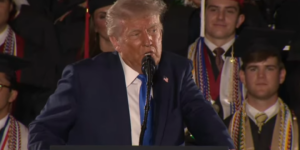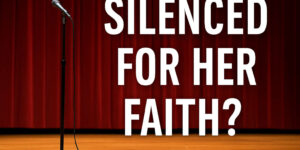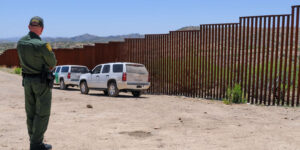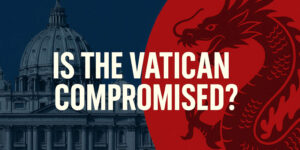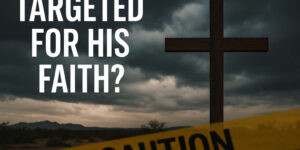Behind the Charm, a Political Pope
Share:
Early Years
Bergoglio, the first of five children, was born and raised in the blue-collar neighborhood of Flores in central Buenos Aires. His father, an Italian immigrant, worked as an accountant in a hosiery factory. His mother, also of Italian descent, worked at home.
His paternal grandparents, who lived close by, taught him Italian. His grandmother, he has said, taught him to pray.
Friends and family recall the neighborhood as a simple and friendly area where residents would sometimes set up tables in the street and share meals. Maria Elena, his only surviving sibling, recalls that their father would gather the family to pray the rosary before dinner.
Bergoglio, she said in an interview, was a studious and kind brother. “He was a great companion,” she says. “He always looked out for friends and family.”
During his first year at high school— a six-year vocational course focused heavily on chemistry—Bergoglio sought permission to ask classmates if they had taken their first communion. The school director agreed and Bergoglio tutored four classmates about the sacrament and introduced them to a local priest. A few months later, all four took communion.
“He already had that vocation,” says Alberto Omodei, one of the classmates. “He had a desire to bring people closer to God.”
Four years on, Bergoglio decided to make it his life. Walking to a spring picnic one morning, he felt the strong urge to enter a church. At a confessional, he had an intense conversation with a priest, decided to skip the picnic and vowed to enter the priesthood.
“I don’t know what happened,” he told an Argentine radio station last year. “But I knew I had to become a priest.”
When he eventually let his parents into his plan, his mother worried the life of a priest would be too lonely. His father embraced the idea.
At 21, he was set to join a seminary in Villa Devoto, another working-class area just west of Flores. But his studies were delayed by a fever that doctors feared could kill him. They removed three cysts in his right lung. According to an account in The Jesuit, an authorized biography by journalists Sergio Rubin and Francesca Ambrogetti published in 2010, Bergoglio was annoyed by the hopeful assurances of people who tried to cheer him. Instead, he found strength in a nun’s declaration that he was “imitating Jesus” through suffering.
“Pain is not a virtue in itself,” Bergoglio told his biographers, “but the way that one handles it can be.”
The young man recovered, entered the seminary and decided to join the Jesuits. The order at the time administered the seminary and Bergoglio found their focus on education and brotherhood appealing.
A year later, in 1960, he moved to Cordoba, Argentina’s second city, where the order trained initiates. The atmosphere, fellow initiates recall, was disciplined and formal. “Brother Bergoglio” was cheerful, but devout. He embraced the order’s curriculum with its emphasis on language, literature and philosophy.
Occasionally, something else caught his eye. In a book of conversations with a rabbi friend, one of several Jewish leaders with whom Bergoglio has maintained a public dialogue over the years, he mentions a young woman he met while attending a wedding while at seminary.
“Her beauty and intellectual glow surprised me,” he says in the book, On Heaven and Earth, published in 2010. “I couldn’t pray for an entire week because whenever I tried, the girl would appear in my head.”
The infatuation passed. For much of the next decade, as he worked towards ordination, he studied at Jesuit universities in Argentina and Chile, and taught at Jesuit schools. Colleagues and students remember a firm but enthusiastic teacher, able to bond with almost anyone—from young pupils and their families to Church superiors and scholars. At one point, he convinced Jorge Luis Borges, one of the giants of Argentine letters, to read to his students.
A Dirty War
After his ordination in 1969 and a brief assignment in Spain, Bergoglio returned to Buenos Aires to run the order’s program for initiates. There, he quickly impressed superiors, according to fellow Jesuits from the period. In 1973, aged 36, Bergoglio was chosen as the order’s national leader, or “provincial,” a post that usually lasts six years.
He earned a reputation as someone who remembers names, hometowns, acquaintances and other small details about his colleagues and Church faithful, say several Jesuit peers. He also made important contacts, most notably with Antonio Quarracino, the bishop who would precede him as archbishop and cardinal.
But Bergoglio’s tenure coincided with one of the most tumultuous periods in Argentina’s history. Like much of the rest of Latin America, the country was riven by economic crisis and growing conflict between right and left. Some members of the regional Church were beginning to flirt with Liberation Theology, a movement that sought to empower the poor. Priests at the extremes of the movement began to advocate armed struggle.
Though Bergoglio had worked for the poor, he made it clear in discussions that the order would not stray too far toward Marxism, according to several of his successors as provincial as well as other Jesuit officials.
Things got much harder when the Argentine military seized power in a coup in 1976 and cracked down on opponents in a brutal campaign of kidnappings, torture and murders that left between 10,000 and 30,000 dead or “disappeared.” Among the regime’s victims were at least 19 priests and scores more Catholic leftists.
One particular episode drew in Bergoglio. In May 1976, naval officers seized two Jesuit priests, Orlando Yorio and Francisco Jalics, because of their pastoral work in a Buenos Aires slum. The military believed the priests were helping anti-government activists.
Fellow Jesuits say Bergoglio, by that time well versed in local politics, would sometimes get tips about pending military sweeps and alert colleagues to avoid them. In the case of Yorio and Jalics, though, no hard evidence has emerged that Bergoglio knew about the abduction in advance.
Share:














